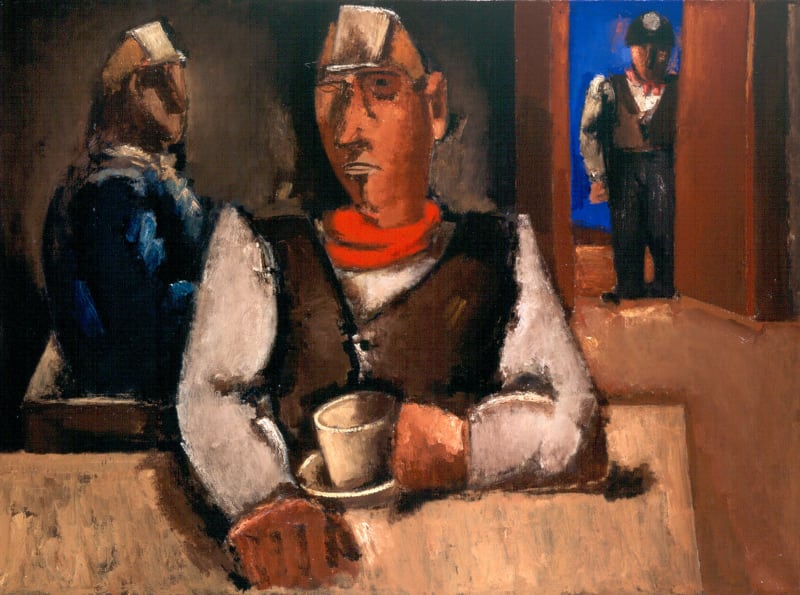Refiguring the 50s featured works by Joan Eardley, Sheila Fell, Eva Frankfurther, Josef Herman and L.S. Lowry: five figurative artists working in Britain in the 1950s, whom each had a strong identification with the place in which they chose to live and work; and which formed, for a significant part of their careers, the primary focus of their practice.
Each artist was associated with a particular place: Eardley with Townhead in Glasgow; Fell, the mining community and landscape of her native Aspatria, Cumbria; Frankfurther with London’s East End and its multicultural working-class communities; Herman with Ystradgynlais in South Wales, with its indigenous mining community, and Lowry with his hometown of Manchester and its industrial, multi-peopled cityscape.
This exhibition links these five artists by uncovering a network of relationships, both personal and professional, and their shared exploration of particular artistic concerns and motifs. This exhibition is one of the outcomes of the Eva Frankfurther Research and Curatorial Fellowship for the Study of Emigré Artists.





